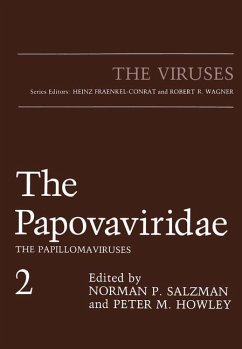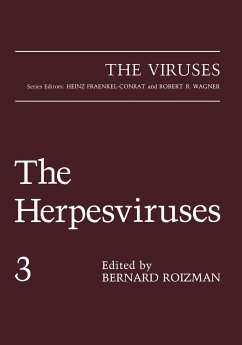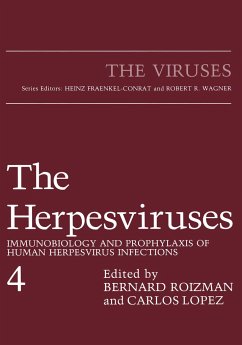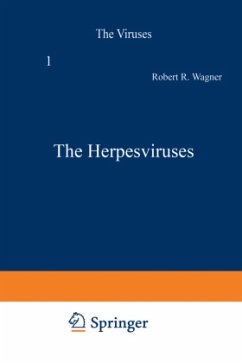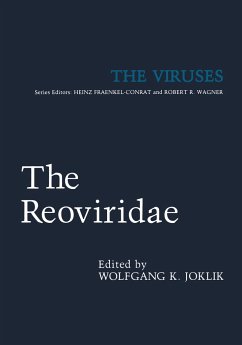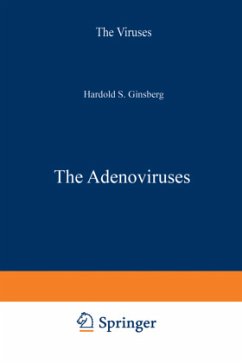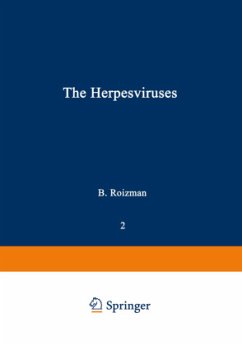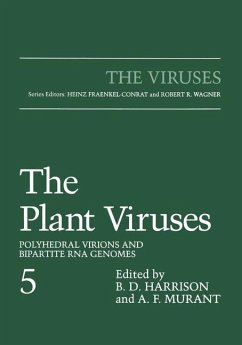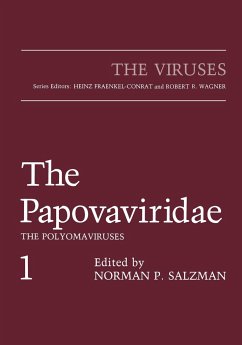
The Papovaviridae
The Polyomaviruses
Herausgegeben: Salzman, Norman P.
Versandkostenfrei!
Versandfertig in 1-2 Wochen
39,99 €
inkl. MwSt.

PAYBACK Punkte
20 °P sammeln!
It has been more than twenty years since the isolation of polyoma virus and SV40, and the reports that they could produce tumors in animals and transformation of cells in culture. What was startling was that these biologic properties are associated with viruses that contain genetic in formation that is able to code for only five or six proteins. Since that time, investigations with these viruses have been in four principal areas. One major area of study has been on cells transformed by viruses that show altered growth properties and specify new viral and cellular proteins. Transformation studi...
It has been more than twenty years since the isolation of polyoma virus and SV40, and the reports that they could produce tumors in animals and transformation of cells in culture. What was startling was that these biologic properties are associated with viruses that contain genetic in formation that is able to code for only five or six proteins. Since that time, investigations with these viruses have been in four principal areas. One major area of study has been on cells transformed by viruses that show altered growth properties and specify new viral and cellular proteins. Transformation studies have focused on the tumor (T) antigens that are specified by the virus and are required to initiate and to maintain the transformed state. Current studies on transformation are summarized in Chapter 4. The second broad area of investigation concerns replication of viruses during a lytic cycle of infection. T-antigens that are the hallmark of transformed cells are also expressed in cells that are lytically infected and are required for viral DNA replication and also function to alter rates of transcription of the early and late viral genes. Except for T-antigen, virus replication depends on the cellular enzymatic machinery and so the description of viral macromolecular synthesis has provided valuable insights into the cellular biosynthetic pathways. These studies are described in Chapters 1-3. The studies that have medical relevance concern JC and BK viruses and there is evidence of widespread exposure of human populations to these agents.





